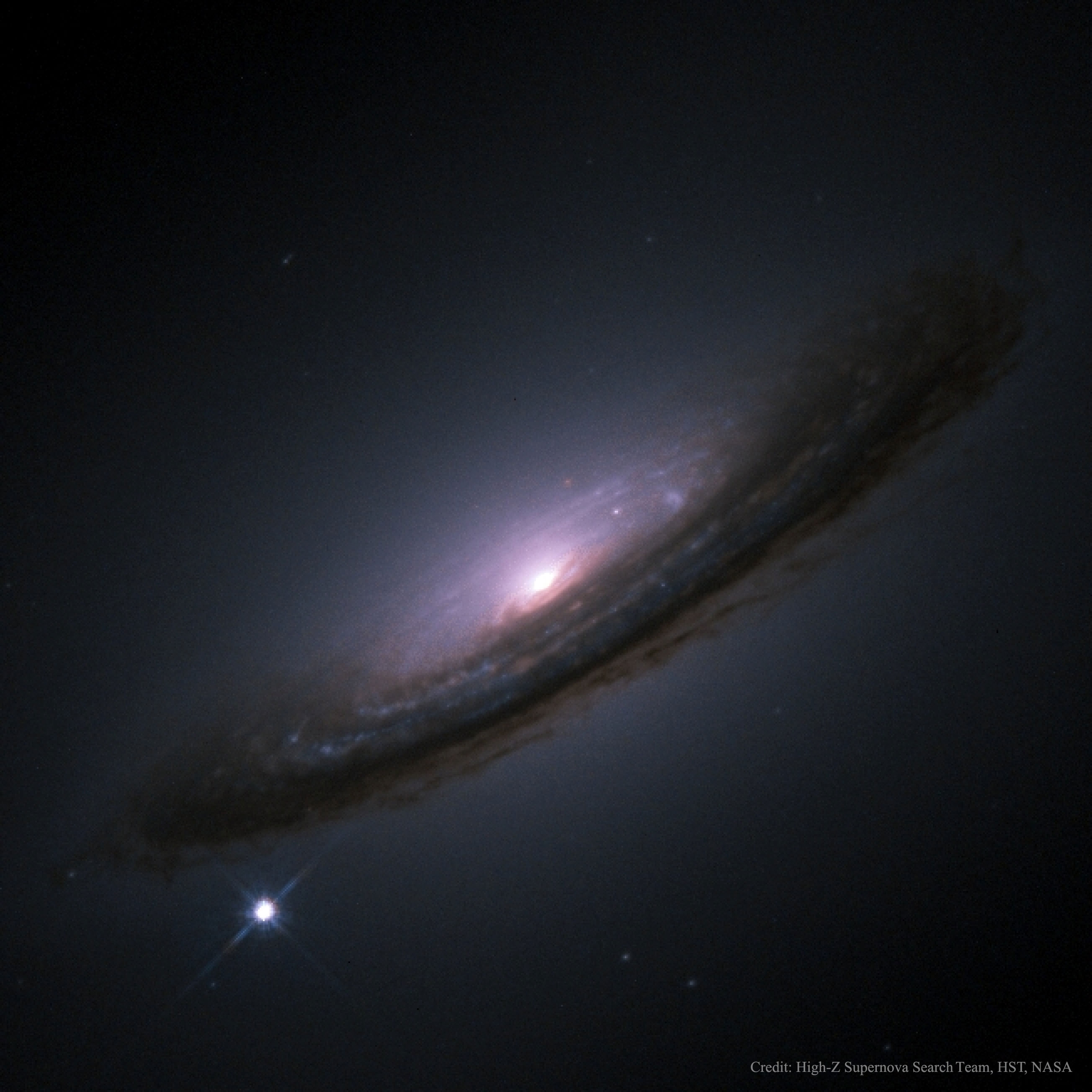
Copyright:
原文:
Long ago, far away, a star exploded. Supernova 1994D, visible as the bright spot on the lower left, occurred in the outskirts of disk galaxy NGC 4526. Supernova 1994D was not of interest for how different it was, but rather for how similar it was to other supernovae. In fact, the light emitted during the weeks after its explosion caused it to be given the familiar designation of a Type Ia supernova. If all Type 1a supernovae have the same intrinsic brightness, then the dimmer a supernova appears, the farther away it must be. By calibrating a precise brightness-distance relation, astronomers are able to estimate not only the expansion rate of the universe (parameterized by the Hubble Constant), but also the geometry of the universe we live in (parameterized by Omega and Lambda). The large number and great distances to supernovae measured over the past few years, when combined with other observations, are interpreted as indicating that we live in a previously unexpected universe.
中文翻譯:
好,以下是一篇適合 Facebook 和 Instagram 的貼文,講述超新星 1994D 的故事,並保留了相應的名稱和專有名詞。文中還添加了適合的 Hashtag:
—
很久以前,遙遠的地方,一顆星星爆炸了。**超新星 1994D**,在盤狀星系 **NGC 4526** 的邊緣可見,閃爍著明亮的光點。超新星 1994D 所引起的關注,並非因為它的不同,而是因為它的相似性。實際上,它在爆炸後幾週發出的光亮,使它被歸類為 **Type Ia supernova**(一型超新星)。如果所有的一型超新星都有相同的內在亮度,那麼超新星看起來越微弱,它就越遠。透過精確的亮度-距離關係,天文學家不僅能夠估算宇宙的膨脹速度(用 **Hubble Constant** 表示),還能理解我們生活的宇宙幾何(用 **Omega** 和 **Lambda** 表示)。這幾年來,科學家測量了大量距離遙遠的超新星,並將這些觀測結果與其它資料結合,解讀出了我們生活在一個之前意想不到的宇宙中。
#超新星 #Supernova1994D #NGC4526 #TypeIaSupernova #HubbleConstant #宇宙膨脹 #星際探索 #天文學 #科學發現 #探索宇宙
—
希望這段文字能夠吸引到你的觀眾!如果需要其他修改或添加,隨時告訴我!
來源:NASA每日圖片


